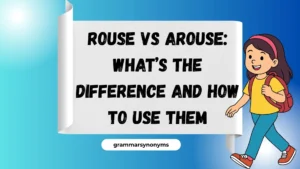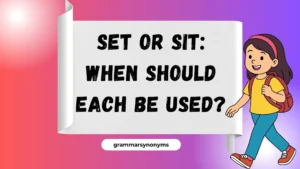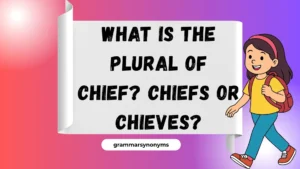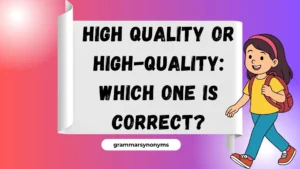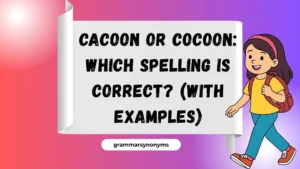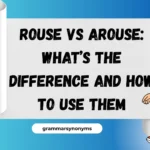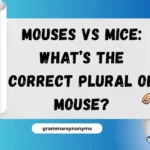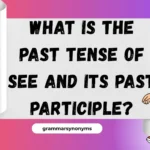When we write an obituary, every word carries emotion. The phrase “Sunrise and Sunset” has long symbolized life’s beginning and end — the beautiful rhythm of existence. But sometimes, you may want something more personal, poetic, or spiritual to capture a loved one’s story.
These 30 alternatives help you express the same tenderness while matching different tones — from faith-based to modern, from simple to soulful. Each phrase offers a way to honor life with warmth, care, and authenticity.
What Does “Sunrise and Sunset” Mean in an Obituary?
“Sunrise” represents birth, the light that enters the world when a new soul arrives. “Sunset” marks passing, the soft close of a meaningful life. Together, they symbolize the full circle of human existence — calm, inevitable, and eternal.
This metaphor comforts readers by reminding them that life and death are natural transitions, much like the movement of the sun.
Is It Professional or Polite to Say “Sunrise and Sunset”?
Yes. The phrase is widely accepted, poetic, and polite. It’s often seen in memorial cards, church programs, and online tributes. Its beauty lies in its universality — anyone can relate to the image of day turning to night.
However, some families prefer wording that feels more unique or faith-specific. That’s where these alternatives can make your message even more personal.
Pros and Cons of Using “Sunrise and Sunset”
Pros:
- Universally gentle and symbolic
- Works across faiths and cultures
- Conveys calm and peace
- Visually poetic
Cons:
- Sometimes overused
- May feel too figurative for formal notices
- Some readers prefer more direct phrasing
Synonyms For “Sunrise and Sunset”
- Born and Entered Eternal Rest
- Began Life’s Journey and Completed It Gracefully
- Came Into This World and Departed Peacefully
- Life’s Dawn and Life’s Dusk
- First Breath and Final Rest
- Entered This Life and Transitioned Beyond
- The Beginning and the Homecoming
- Arrival and Departure
- Came to Light and Entered the Light
- Arrival on Earth and Departure to Heaven
- Born into Time, Entered Eternity
- First Steps and Final Journey
- Entered Life’s Stage and Took the Final Bow
- First Cry and Final Goodbye
- Opened Eyes to the World and Closed Them in Peace
- Life’s Opening and Closing Chapters
- Born of Earth, Returned to Spirit
- The Beginning and the Eternal Rest
- Entered Our Lives and Entered Heaven’s Gates
- Life’s Dawn and Life’s Rest
- Born to Love and Returned to Love
- First Light and Last Twilight
- Born Here, Eternal There
- The Start and the Serenity
- Entered the World and Left a Legacy
- First Smile and Eternal Sleep
- Came as a Blessing and Rested in Grace
- Birth and Beyond
- Arrival and Reunion
- Born Here, Eternal There
1. Born and Entered Eternal Rest
Definition: Birth and a peaceful transition to everlasting rest.
Explanation: Common in Christian obituaries, highlighting the belief in life after death.
Example: Born: March 12, 1945 – Entered Eternal Rest: May 10, 2023.
Best Use: Faith-based tributes.
Tone: Reverent and serene.
Additional Notes: Ideal for memorial bulletins or church announcements.
2. Began Life’s Journey and Completed It Gracefully
Definition: Frames life as a meaningful path from start to finish.
Explanation: Emphasizes the way the person lived with dignity and grace.
Example: Began life’s journey: July 9, 1951 – Completed it gracefully: September 2, 2022.
Best Use: For heartfelt and elegant memorials.
Tone: Poetic, reflective.
Additional Notes: Perfect for artistic or literary-minded tributes.
3. Came Into This World and Departed Peacefully
Definition: Describes one’s arrival and calm departure.
Explanation: Simple yet full of tenderness.
Example: Came into this world: February 11, 1937 – Departed peacefully: April 30, 2023.
Best Use: For secular or minimalist obituaries.
Tone: Neutral, kind.
Additional Notes: Universally appropriate.
4. Life’s Dawn and Life’s Dusk
Definition: Symbolic of the start and end of life’s day.
Explanation: Evokes the poetry of natural cycles.
Example: Life’s dawn: October 6, 1940 – Life’s dusk: January 8, 2022.
Best Use: Poetic memorials.
Tone: Romantic, serene.
Additional Notes: Lovely for printed programs.
5. First Breath and Final Rest
Definition: Life’s very first and final moments.
Explanation: Deeply human and emotional.
Example: First breath: August 4, 1962 – Final rest: December 17, 2024.
Best Use: Family or personal tributes.
Tone: Tender, sincere.
Additional Notes: Works well in obituary paragraphs.
6. Entered This Life and Transitioned Beyond
Definition: Moving from earthly life to a higher realm.
Explanation: Suggests spiritual continuation.
Example: Entered this life: May 14, 1949 – Transitioned beyond: March 28, 2021.
Best Use: Spiritual or interfaith services.
Tone: Hopeful, uplifting.
Additional Notes: Avoids religious specificity.
7. The Beginning and the Homecoming
Definition: Life begins here, ends in return to the divine.
Explanation: Reflects belief in heaven or spiritual reunion.
Example: The beginning: January 3, 1948 – The homecoming: October 2, 2022.
Best Use: Religious funerals.
Tone: Faith-filled, warm.
Additional Notes: Perfect for Christian and Catholic use.
8. Arrival and Departure
Definition: Entry and exit from the world’s stage.
Explanation: Elegant and minimalist.
Example: Arrival: June 21, 1955 – Departure: August 19, 2024.
Best Use: Professional or printed obituaries.
Tone: Formal, simple.
Additional Notes: Universally neutral.
9. Came to Light and Entered the Light
Definition: Birth and peaceful spiritual return.
Explanation: Symbolizes purity, love, and light.
Example: Came to light: March 7, 1958 – Entered the light: July 12, 2023.
Best Use: Spiritual or metaphoric writings.
Tone: Hopeful, luminous.
Additional Notes: Suitable for all beliefs centered on peace.
10. Arrival on Earth and Departure to Heaven
Definition: Emphasizes both physical birth and spiritual ascension.
Explanation: A faith-driven view of life’s cycle.
Example: Arrival on Earth: May 1, 1940 – Departure to Heaven: December 6, 2022.
Best Use: Christian tributes.
Tone: Reverent, faithful.
Additional Notes: Popular in memorial church bulletins.
11. Born into Time, Entered Eternity
Definition: Life begins in time and continues beyond it.
Explanation: Combines poetic and spiritual imagery.
Example: Born into time: August 16, 1947 – Entered eternity: April 3, 2023.
Best Use: Religious or spiritual obituaries.
Tone: Profound, poetic.
Additional Notes: Suits any faith-based text.
12. First Steps and Final Journey
Definition: Life viewed as a meaningful walk.
Explanation: Suggests a full, purposeful journey.
Example: First steps: January 18, 1960 – Final journey: July 22, 2024.
Best Use: Personal obituaries highlighting achievements.
Tone: Reflective, warm.
Additional Notes: Excellent for storytelling tributes.
13. Entered Life’s Stage and Took the Final Bow
Definition: Uses theatrical metaphor for life’s roles.
Explanation: Elegant and creative, showing grace in exit.
Example: Entered life’s stage: May 5, 1952 – Took the final bow: November 30, 2022.
Best Use: Artistic or performing-arts tributes.
Tone: Poetic, refined.
Additional Notes: Perfect for creative professions.
14. First Cry and Final Goodbye
Definition: Begins with the sound of life, ends in peace.
Explanation: Raw, emotional, deeply personal.
Example: First cry: March 3, 1975 – Final goodbye: May 15, 2024.
Best Use: Personal or family memorials.
Tone: Emotional, heartfelt.
Additional Notes: Fits emotional obituaries.
15. Opened Eyes to the World and Closed Them in Peace
Definition: Marks life’s awareness and gentle rest.
Explanation: Simple and touching.
Example: Opened eyes to the world: July 17, 1949 – Closed them in peace: April 9, 2023.
Best Use: Any soft, personal obituary.
Tone: Gentle, comforting.
Additional Notes: Universally suitable.
16. Life’s Opening and Closing Chapters
Definition: Frames life as a meaningful story.
Explanation: Beautiful for storytellers and book lovers.
Example: Life’s opening chapter: September 8, 1943 – Closing chapter: June 19, 2024.
Best Use: Poetic or literary obituaries.
Tone: Reflective, elegant.
Additional Notes: Great for written tributes.
17. Born of Earth, Returned to Spirit
Definition: Symbolizes physical and spiritual transformation.
Explanation: Poetic and universal.
Example: Born of earth: May 11, 1959 – Returned to spirit: August 25, 2024.
Best Use: Interfaith or eco-spiritual services.
Tone: Mystical, serene.
Additional Notes: Appeals to nature-minded audiences.
18. The Beginning and the Eternal Rest
Definition: Marks life’s start and everlasting peace.
Explanation: Traditional yet comforting.
Example: The beginning: June 4, 1935 – The eternal rest: December 31, 2022.
Best Use: For printed funeral announcements.
Tone: Reverent, calm.
Additional Notes: Fits Catholic or formal memorials.
19. Entered Our Lives and Entered Heaven’s Gates
Definition: From joining loved ones on earth to reunion above.
Explanation: Warm and faith-centered.
Example: Entered our lives: July 22, 1951 – Entered Heaven’s gates: April 15, 2023.
Best Use: Christian or family obituaries.
Tone: Loving, hopeful.
Additional Notes: Adds intimacy to messages.
20. Life’s Dawn and Life’s Rest
Definition: The day of life’s rise and calm close.
Explanation: Similar to “Sunrise and Sunset” but fresher.
Example: Life’s dawn: April 9, 1948 – Life’s rest: August 2, 2024.
Best Use: Poetic yet traditional obituaries.
Tone: Peaceful, graceful.
Additional Notes: Perfect alternative for “Sunrise and Sunset.”
21. Born to Love and Returned to Love
Definition: Life framed through love’s journey.
Explanation: Expresses unity and eternal affection.
Example: Born to love: December 14, 1957 – Returned to love: March 20, 2023.
Best Use: Family-centered tributes.
Tone: Warm, affectionate.
Additional Notes: Ideal for emotional remembrances.
22. First Light and Last Twilight
Definition: Uses the poetry of light and dusk.
Explanation: Subtle and atmospheric.
Example: First light: August 23, 1963 – Last twilight: October 8, 2023.
Best Use: Poetic obituary styles.
Tone: Dreamy, reflective.
Additional Notes: Great for artistic souls.
23. Born Here, Eternal There
Definition: Contrasts earthly and eternal realms.
Explanation: Highlights spiritual belief in continuity.
Example: Born here: March 29, 1946 – Eternal there: June 5, 2022.
Best Use: Religious or faith-inspired obituaries.
Tone: Uplifting, concise.
Additional Notes: Works well on memorial stones.
24. The Start and the Serenity
Definition: Life begins in motion and ends in peace.
Explanation: Balances simplicity with grace.
Example: The start: May 20, 1950 – The serenity: April 12, 2024.
Best Use: Short obituary statements.
Tone: Calm, kind.
Additional Notes: Excellent for obituary headings.
25. Entered the World and Left a Legacy
Definition: Birth and meaningful remembrance.
Explanation: Focuses on contribution, not only loss.
Example: Entered the world: January 2, 1949 – Left a legacy: February 14, 2024.
Best Use: For impactful, accomplished lives.
Tone: Proud, loving.
Additional Notes: Ideal for leaders or mentors.
26. First Smile and Eternal Sleep
Definition: Innocent start and peaceful conclusion.
Explanation: Captures sweetness and rest.
Example: First smile: May 3, 1970 – Eternal sleep: July 25, 2023.
Best Use: Gentle memorials.
Tone: Tender, soft.
Additional Notes: Common in poetic epitaphs.
27. Came as a Blessing and Rested in Grace
Definition: Life as divine gift, death as grace.
Explanation: Comforting and faith-oriented.
Example: Came as a blessing: November 10, 1953 – Rested in grace: January 30, 2023.
Best Use: Religious funeral announcements.
Tone: Spiritual, peaceful.
Additional Notes: Reflects gratitude and love.
28. Birth and Beyond
Definition: Simple summary of life and continuity.
Explanation: Minimal and modern.
Example: Birth: June 6, 1947 – Beyond: May 14, 2023.
Best Use: Modern obituary designs.
Tone: Contemporary, calm.
Additional Notes: Great for online tributes.
29. Arrival and Reunion
Definition: Coming into life and reuniting with ancestors.
Explanation: Suggests cyclical family connection.
Example: Arrival: February 15, 1959 – Reunion: September 12, 2024.
Best Use: Family-oriented services.
Tone: Warm, hopeful.
Additional Notes: Touches hearts through unity.
30. Born Here, Eternal There
Definition: Contrasts earthly beginning and heavenly continuation.
Explanation: Short, strong statement of faith.
Example: Born here: October 8, 1945 – Eternal there: June 9, 2024.
Best Use: On gravestones or printed memorials.
Tone: Reverent, final.
Additional Notes: Lasting and timeless.
🌷 Conclusion
Each of these alternatives to “Sunrise and Sunset” carries its own shade of meaning. Whether you prefer something poetic, spiritual, or simple, the goal is to express love and respect in a way that reflects your loved one’s journey. The right phrase can comfort hearts and turn sorrow into remembrance — like the sun setting only to rise again.
FAQs
1. Why should I use an alternative to “Sunrise and Sunset”?
To personalize your message and make it stand out while preserving warmth and dignity.
2. What’s the best phrase for a religious obituary?
“Born into Time, Entered Eternity” or “Arrival on Earth and Departure to Heaven.”
3. Which alternative suits a secular tribute?
“Came Into This World and Departed Peacefully” or “Arrival and Departure.”
4. Can I mix phrases in one obituary?
Yes — you can use one for the heading and another for the body.
5. What if I want something short for a gravestone?
“First Light and Last Twilight” or “Born Here, Eternal There” are concise and poetic.

